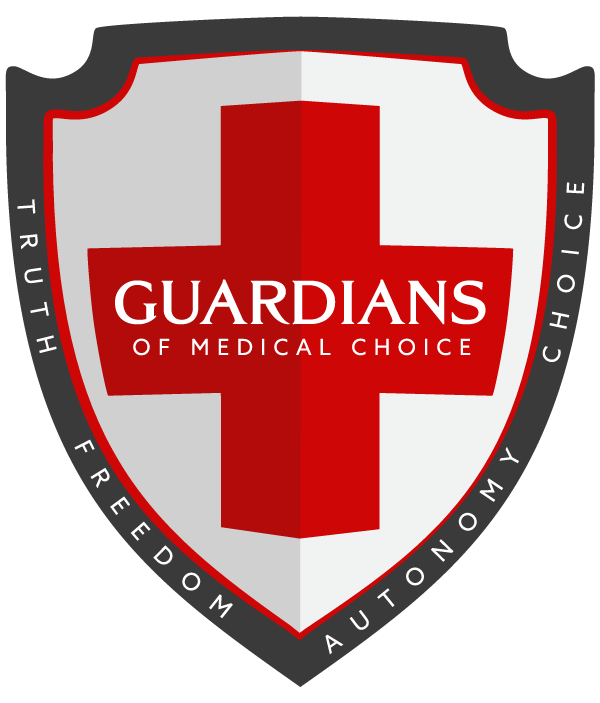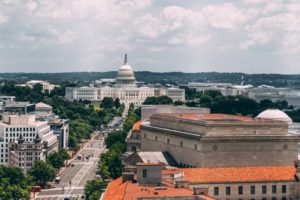January 13, 2022
The Brandon Administration vaccination requirement through OSHA for 84 million Americans has been deemed unlawful by the Supreme Court but it does not take into account the EUA approval requiring participation in an investigational drug trial and the continued lack of FDA approval. The legality of forcing employees to participate in a clinical drug trial to maintain employment will be decided elsewhere.
We filed the first case in the US on behalf of healthcare workers and need your support because our lawsuit in the 5th Circuit Court of Appeals addresses these very issues!
Excerpted from SUPREME COURT OF THE UNITED STATES, Nos. 21A244 and 21A247
- NATIONAL FEDERATION OF INDEPENDENT BUSINESS, ET AL., APPLICANTS 21A244 v. DEPARTMENT OF LABOR, OCCUPATIONAL SAFETY AND HEALTH ADMINISTRATION, ET AL.
- OHIO, ET AL., APPLICANTS 21A247 v. DEPARTMENT OF LABOR, OCCUPATIONAL SAFETY AND HEALTH ADMINISTRATION, ET AL.
OSHA mandated regulations for ALL employers of more than 100 employees. Regulations to be applied to roughly 84 million workers included:
- Requires covered workers receive a COVID–19 vaccine
- Only exception is for workers who obtain a medical test each week at their own expense and on their own time and wear a mask each workday.
- Pre-empts contrary state laws.
Plaintiffs sought emergency injunction/stay/relief arguing OSHA’s mandate exceeds its statutory authority and is unlawful.
ON APPLICATIONS FOR STAYS (emergency injunction/stay/relief)
SCOTUS agreed that applicants are likely to prevail on the merits of their claim that OSHA lacks the authority to impose the mandate staying the rule. Who holds the power to do so? The answer is clear: Under the law as it stands today, that power rests with the States and Congress, not OSHA.
That is not to say OSHA lacks authority to regulate occupation-specific risks related to COVID–19. Where the virus poses a special danger because of the particular features of an employee’s job or workplace, targeted regulations are plainly permissible.
OSHA’s indiscriminate approach fails to account for this crucial distinction—between occupational risk and risk more generally—and accordingly the mandate takes on the character of a general public health measure, rather than an “occupational safety or health standard.”
The applications for stays presented to JUSTICE KAVANAUGH and by him referred to the Court are granted.
OSHA’s COVID–19 Vaccination and Testing; Emergency Temporary Standard, 86 Fed. Reg. 61402, is stayed pending disposition of the applicants’ petitions for review in the United States Court of Appeals for the Sixth Circuit and disposition of the applicants’ petitions for writs of certiorari, if such writs are timely sought. Should the petitions for writs of certiorari be denied, this order shall terminate automatically. In the event the petitions for writs of certiorari are granted, the order shall terminate upon the sending down of the judgment of this Court.
access the complete SCOTUS judgement here
SCOTUS upheld the Centers for Medicare and Medicaid Services (CMS) vaccine mandate for 10 million healthcare workers in about 76,000 hospitals, nursing homes, and other healthcare facilities across the US. CMS has the ability to mandate the vaccine in all facilities that receive Medicare and Medicaid funding. This ruling ended the stay on the mandate put in place in over 24 states by judges in Missouri and Louisiana. Another stay on the mandate from a Texas judge was not impacted by the ruling.
Judge Thomas argued that CMS does not have the authority to force healthcare workers to take the vaccine but with this ruling healthcare workers have until the end of February to comply with the mandate.
According to the Wall Street Journal, “Technically, the Supreme Court wasn’t considering the full merits of the administration’s mandates,” the Wall Street Journal explained. Instead, the justices heard the cases on an emergency basis to decide whether the regulations could go into effect right now while more detailed litigation continued in the lower courts.”
Excerpted from SUPREME COURT OF THE UNITED STATES, Nos. 21A240 and 21A241
- JOSEPH R. BIDEN, JR., PRESIDENT OF THE UNITED STATES, ET AL., APPLICANTS 21A240 v. MISSOURI, ET AL.
- XAVIER BECERRA, SECRETARY OF HEALTH AND HUMAN SERVICES, ET AL., APPLICANTS 21A241 v. LOUISIANA, ET AL.
ON APPLICATIONS FOR STAYS
CMS has established long lists of detailed conditions with which facilities must comply to be eligible to receive Medicare and Medicaid funds. SCOTUS agreed HHS Secretary’s rule falls within the authorities that Congress has conferred upon him.
Again, this does not take into account the EUA approval requiring participation in an investigational drug trial and the continued lack of FDA approval. The legality of forcing employees to participate in a clinical drug trial to maintain employment will be decided in litigation to be continued in the lower courts.
access the complete SCOTUS judgement here




